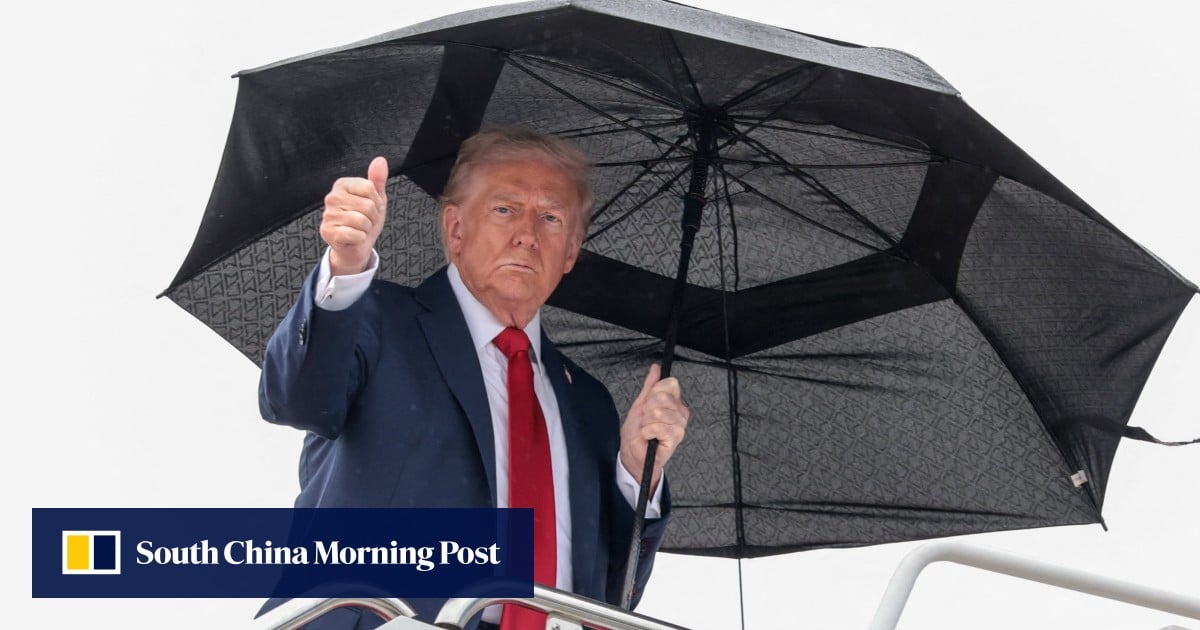Donald Trump and Kamala Harris. (EPA; AP/Yonhap)
Among the many countries interested in the ultra-tight US presidential race, one cannot leave out China. Posts on the Chinese social media platform Weibo with a hashtag for the US presidential election have garnered 14.8 billion views and accumulated 3.75 million comments, indicating an extremely high level of interest. The hegemonic struggle between the US and China has continued for nearly 10 years now, and the next US president will have an enormous impact on China for the next four years.
Even China’s own political events are impacted by the US presidential election. Last month, the Standing Committee of the National People’s Congress (NPCSC), the state’s highest legislative organ, announced that it would be convening from Nov. 4 to 8. Normally, the NPCSC only convenes during even-number months (February, April, etc.), yet the committee is scheduled to meet right around the US presidential election and when we get an idea of the results.
Reuters reported that the NPSCS is reviewing economic stimulus measures that would raise China’s debt ceiling by an additional 10 trillion yuan (US$1.41 trillion). Reuters predicted that China might raise the debt ceiling even further if Trump is elected.
Which candidate does China favor: Vice President Kamala Harris of the Democratic Party or former US President Donald Trump of the Republican Party? Scholars who study international relations as they pertain to China say that no matter who is elected, the basic structure of strategic competition between the US and China will not change too much, and that any changes will be minimal.
While certain friction points in the US-China conflict changed from the Trump administration to the Biden administration, there were no fundamental changes to the two countries’ competitive relations in terms of economics, foreign policy, and national security.
“Our competition with the US is a constant that cannot change,” said Jin Canrong, a professor and associate dean of the Renmin University of China’s School of International Studies, at a recent forum.
“Washington’s strategies will be rough or delicate, depending on who wins the election,” he said.
When delving into the actual details, the two candidates are not that different. Harris is likely to continue the Biden administration’s policy of cooperating with allies like South Korea, Japan and the EU to put pressure on China in cutting-edge industries like semiconductors and artificial intelligence. Trump, on the other hand, prioritizes US interests over Washington’s allies, perhaps even to the point of isolationism. He has pledged to put a 60% tariff on Chinese imports and said he knows Xi Jinping “very well.” As far as China is concerned, Harris is picky but predictable, while Trump is forceful and unpredictable but has the potential to thaw the current freeze in US-China relations.
In an interview with the Hankyoreh, a researcher of international relations at a Chinese public policy institute who requested anonymity said: “No matter who wins, the overall structures in US-China relations will not change.”
“In terms of maintaining a stable relationship with the US, China prefers a Democratic administration,” they added.
“Harris has said she will continue the policies of the Biden administration,” the researcher continued, “while it’s unclear what kind of policy curve balls Trump will throw if he is elected.”
Wang Hsin-hsien, the acting director of National Chengchi University’s Institute of International Relations in Taiwan, told the Hankyoreh that China “will likely prefer Harris.”
“The Biden administration has opened communication channels with Beijing in various areas over the past three years,” Wang added.
“China painstakingly opened these communication channels, and will want to maintain them,” he said.
“It’s not necessarily a bad thing for China if Trump is elected,” Wang added.
“Trump is a businessman, and will want to make a deal. He also doesn’t seem to trust the US’ allies, so he could inflict cracks in the current international blockade around China and bring about change in US-China relations,” he went on to say.
Some even say that China likely prefers a Trump presidency. Wu Qiang, a former lecturer at Tsinghua University and independent political commentator in China, told German publication Deutsche Welle: “Trump returning to the White House would be a major advantage for China, as it would signify deeper divisions within American democracy.”
“Amid division with Europe and America’s global allies, the US will revert to a new form of isolationism, which was already evident during Trump’s previous term,” Wang added.
In short, Trump’s election could signal an American crisis, which would be China’s opportunity.
In 2020, at the height of the COVID-19 crisis, Trump announced the US’ withdrawal from the World Health Organization. In 2019, he said the US would pull out of the Paris climate accords. He pressured South Korea to increase its financial contribution to stationing US troops and hinted at pulling the US out of NATO. At the same time, China worked to establish itself as a new leader in the international community. China provided the COVID-19 vaccine it developed to countries in Southeast Asia, South America, and Africa, and took a leading role in organizations like BRICS and the Shanghai Cooperation Organisation, which are designed to challenge a US-led world order.
By Choi Hyun-june, Beijing correspondent
Please direct questions or comments to [english@hani.co.kr]


